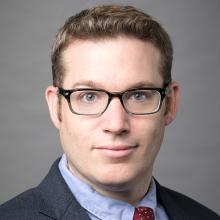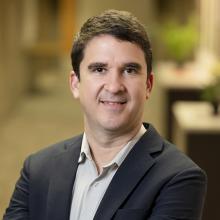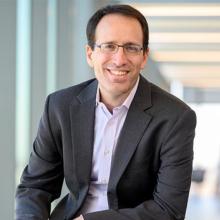Corporate Partners Scholarship Program
Corporate Partners Scholarship Program

Corporate and Strategic Partnerships
Corporate Partners Scholarship Program
The Johns Hopkins Carey Business School partners with companies to provide talent development and educational benefits to corporate partner employees. Partnership benefits include:
- Tuition scholarships for designated Carey Business School degree programs
- 20% discounts on courses offered by Carey Business School Executive Education
- Waived application fees
- Additional benefits for military service members and veterans
Innovation Partnership (Free benefit for Carey Partners)
Flexible MBA
$15,000 scholarship
The online Flexible MBA allows you to complete the program while maintaining your personal and professional obligations. Gain practical experience in the classroom that can be directly applied back to your organization, build a network of industry professionals from across the globe, partake in experiential learning opportunities to advance leadership skills, and graduate with new resources to advance in your career.
You can choose from eight in-demand specializations to customize your online MBA experience.
Part-time Master of Science
$10,000 scholarship
Johns Hopkins Carey Business School offers five part-time Master of Science programs to equip students with specialized knowledge and skills in various disciplines. Taught by faculty who research for the future, our Master of Science programs are developed with data and are designed to respond to the changing business landscape.
Executive Education open enrollment courses
Ongoing 20% tuition
Johns Hopkins Carey Business School helps leaders advance their careers at every level. Our world-renowned faculty combines cutting-edge research with program design to transform individuals and organizations. Explore our over 30 programs that range in length from two days to two weeks led by industry experts at Johns Hopkins University.
Visionary Partnership ($10,000 investment)
Flexible MBA
$30,000 scholarship
The online Flexible MBA allows you to complete the program while maintaining your personal and professional obligations. Gain practical experience in the classroom that can be directly applied back to your organization, build a network of industry professionals from across the globe, partake in experiential learning opportunities to advance leadership skills, and graduate with new resources to advance in your career.
You can choose from eight in-demand specializations to customize your online MBA experience.
Part-time Master of Science
$20,000 scholarship
Johns Hopkins Carey Business School offers five part-time Master of Science programs to equip students with specialized knowledge and skills in various disciplines. Taught by faculty who research for the future, our Master of Science programs are developed with data and are designed to respond to the changing business landscape.
Leadership Development Program
$10,000 scholarship
A nine-month cohort experience actively supporting professional and personal growth, organizational resilience, and focused networking to enhance business knowledge and skills for advancement as a decision-maker and leader in a rapidly changing global workplace. Credits are transferrable to Johns Hopkins Carey Business School's part-time MBA and master’s degree programs.
Executive Education open enrollment courses
Ongoing 20% tuition discount
Johns Hopkins Carey Business School helps leaders advance their careers at every level. Our world-renowned faculty combines cutting-edge research with program design to transform individuals and organizations. Explore our over 30 programs that range in length from two days to two weeks led by industry experts at Johns Hopkins University.
We also offer customizable courses for your organization’s professional development designed for groups of all sizes.
Become a Carey Partner today
-
Learn more about our programs
Eligibility
All employees of Carey Corporate Partners are eligible to receive tuition discounts based on acceptance into one of the eligible programs above. Application fees are waived for Partners. To qualify for the scholarship, you must be a new student.
Application
Please review our application process and application deadlines. You will be given a unique partner code to enter on your application to signal scholarship eligibility. If you do not have your partner code, please email carey_partnerships@jh.edu.
Enrollment
Once accepted, you will receive a decision letter including scholarship information and next steps.
The Carey Partnership Scholarships will be distributed evenly throughout the program.
- Flex MBA – Split evenly over three years
- Flex MS – Split evenly over two years
- Leadership Development Program – Received in full
- Executive Education Discounts – Applied immediately upon registration
Tuition Reimbursement
Students are responsible for arranging additional corporate tuition reimbursement, such as an employer tuition reimbursement plan.
Scholarship Stacking
Students cannot combine multiple Carey scholarships. Instead, if offered more than one, they may select the single scholarship that provides the most significant benefit.
Financial Aid
Fully admitted students are eligible to receive federal unsubsidized loans through the Financial Aid Office. Click here for more information on eligibility requirements and how to apply.








